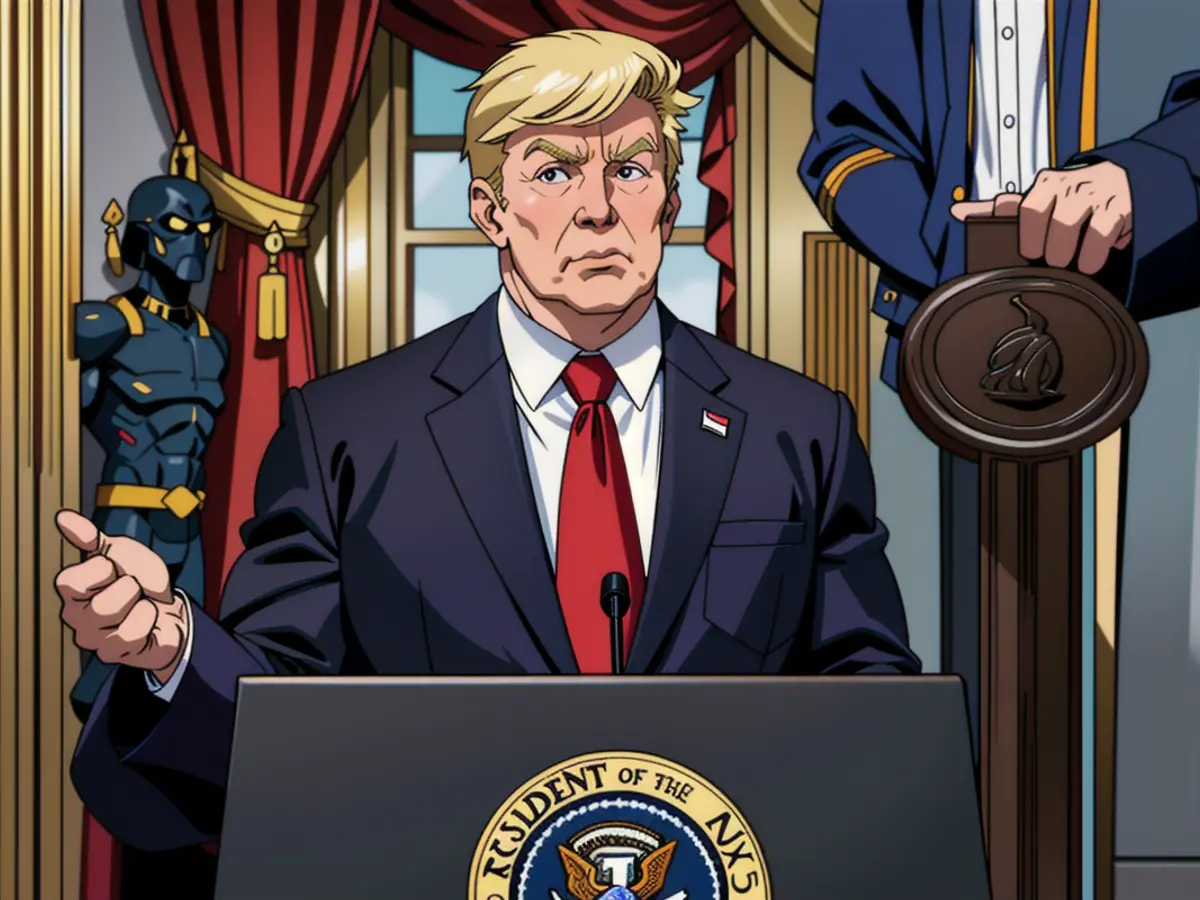Trump's Crusade Against Elites Pervades Nearly Every Sector of U.S. Society
President Donald Trump is on a crusade against what he sees as an entrenched elite, wielding executive power to bend the government, media, education, public health, foreign policy, and arts to his will. Trump hasn't shied away from threats against political adversaries, but his strategy goes beyond personal vendettas—it's a full-blown attempt to reshape American politics and culture.
Last year, Trump made it clear he'd use executive authority to retaliate against enemies. However, his ambitions reach far beyond payback. He's launching attacks on Ivy League universities, law firms, and the bureaucracy, upending eighty years of global leadership orthodoxy, and using tariffs to shake up the global trading system.
Take, for example, the White House's leverage over Columbia University, forcing it to tighten campus security, scrutinize its Middle East curriculum, ban masks at protests, and boost law enforcement. Other educational institutions now fear they could fall into similar crosshairs, with Trump dogma potentially take hold. This tactic might widen the political rift created by conservative pressure on top colleges over anti-Israel protests amid the Gaza conflict.
Recently, Trump directed Attorney General Pam Bondi to go after lawyers and law firms involved in what he perceives as frivolous or vexatious litigation against the U.S. The White House revoked punishment against one top white-collar firm after it agreed to provide $40 million in pro bono services to support administration initiatives and discontinue diversity, equity, and inclusion programs. The firm, Paul, Weiss, Rifkind, Wharton & Garrison, disputes the administration's characterization of the agreement, but the deal sparked backlash in Washington.
Trump's broad strategy echoes the anti-establishment fervor that fueled his campaign rallies. It's part of a wider effort to dismantle a liberal in-crowd that supposedly dominates Washington governance and Western power with values Trump sees as less authentic. Evidence of this can be seen in his gutting of the Department of Education, traditionally seen as a lever for Democratic-backed teachers' unions and inclusive gender, race, and education policies.
Trump's choice for education secretary, Linda McMahon, lacking education experience but a fortunemaker in professional wrestling, represents a rebuke to the educational establishment. McMahon told CNN's Dana Bash on "State of the Union" that the Department of Education doesn't educate children, establish curricula, hire teachers, or set programs. Instead, she vowed to send federal funds directly to states.
Trump's disdain for intellectualism has been evident throughout his presidency. However, efforts to bring universities, media, and medical establishments to heel are causing concern over academic and press freedom, the sanctity of science in public health, and the erosion of culture. His reach extends as far as controlling the Kennedy Center in Washington, where he's installed Fox News anchors on the board and pledged to replace high culture with more mainstream programming.
Trump draws significant support from outside America's cities and wealthy suburbs, believing he has a mandate for transformation after winning all seven swing states and the popular vote. This revolution in the Republican Party has shed its establishment past, embracing working-class constituencies that once supported the Democrats.
Yet, Trump's actions bear a chilling resemblance to strongman leaders who have used assaults on academia, the media, law, and business to erode basic freedoms, sow oligarchical corruption, and undermine democracy. Examples include Hungary under Prime Minister Viktor Orban, a hero of the MAGA movement.
Trump's ultra-nationalist instincts and admiration for dictators like Russian President Vladimir Putin challenge established US foreign policy and the international system built after World War II. His administration's insistence that liberal district court judges don't have the right to interpret the Constitution in ways limiting presidential power is testing the rule of law in America.
In Trump's eyes, American greatness has been compromised by leftist elite policies that have weakened domestic manufacturing, suppressed freedoms, imposed radical liberal values in education, allowed unchecked migration, caused weakness abroad, and allowed America's friends to exploit its generosity. Reflecting this belief, Trump sketched out his approach in various policy areas, intending to fundamentally change America for the better during his second term.
The Trump administration's battles with legal elites and the federal judiciary exemplify its attempts to undermine sources of power it perceives as hostile. This is demonstrated by Trump's attacks on a US federal judge who sought to halt deportations of alleged gang members. The president's labeling of judges as illegitimate undermines the foundation of the legal system.
Enrichment Data:- The Trump administration's assault on universities, law firms, and the judiciary presents constitutional and legal challenges. Courts are currently considering these issues, with some federal judges temporarily blocking Trump's orders affecting law firms[1].- Trump's escalation of executive power and attacks on independent institutions could set dangerous precedents, potentially leading to a erosion of checks and balances, weakening democracy, and fostering oligarchical corruption[2].- The administration's attempts to dismantle diversity, equity, and inclusion policies in institutions also has implications for civil rights law, with potential consequences for minority groups[4].
[1] - https://www.reuters.com/article/us-usa-trump-law-suits-idUSKBN2D22GA[2] - https://www.washingtonpost.com/politics/2020/08/05/what-trump-teaches-the-world-about-power-america-unity/[3] - https://www.nytimes.com/2018/08/17/us/politics/trump-law-firms-kingdom-key-west.html[4] - https://www.npr.org/2018/08/22/640751453/the-trump-administrations-efforts-to-erase-diversity-programs-raise-civil-rights-ques
- The Trump administration's assault on universities, law firms, and the judiciary, as seen in their attempts to reshape higher education institutions and alter diversity, equity, and inclusion policies, poses challenges to the Constitution and civil rights law.
- Trump's use of executive power to hinder law firms through punitive measures could set unwelcome precedents, potentially leading to a weakening of checks and balances, erosion of democracy, and fostering oligarchical corruption.
- Trump's strategy in politics includes educating America on his perception of weaknesses within the system, such as unchecked migration, suppressed freedoms, and leftist elite policies that have compromised American greatness, which he intends to address during his second term.









